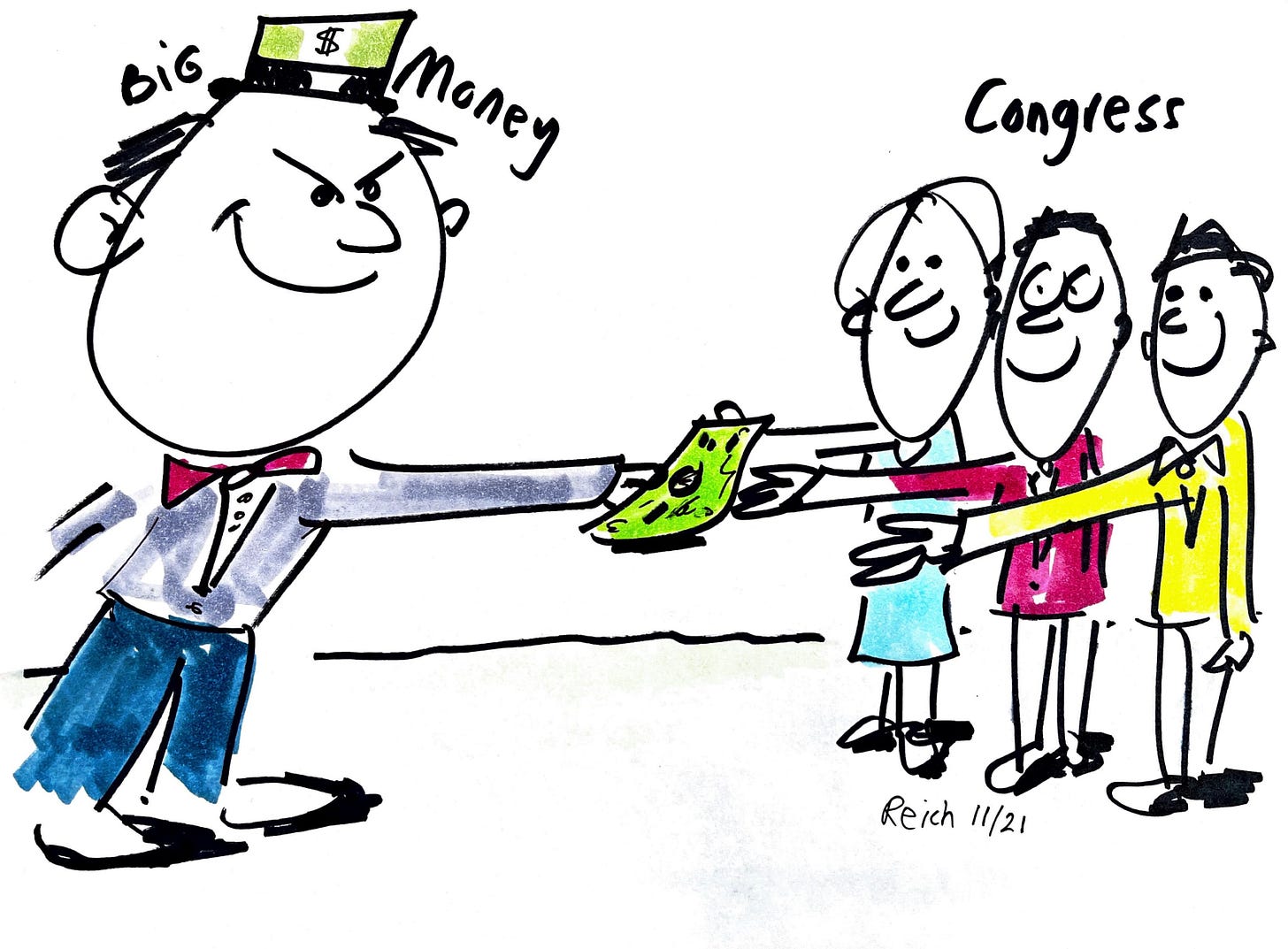What Democrats must now do
The biggest lesson from Tuesday's election results
Today, the House is expected to move forward with a vote on both the Build Back Better social and economic package and the bipartisan infrastructure bill. The big remaining question is how to pay for it. The answer should be by taxing the wealthiest Americans and big corporations. House Democrats must hold the line on this.
The biggest lesson from Tuesday’s election results is that too many people in America’s vast working middle class don’t believe Democrats are on their side. The best way of persuading them otherwise is to enact the social and economic package and infrastructure bill — and pay for it by taxing ultra-wealthy Americans who have never been wealthier yet don’t pay their fair share.
How, specifically? Five ways:
1. The so-called “billionaire’s tax” would require Americans with $1-billion-plus fortunes to pay capital gains tax on assets as their value rose, not just when those assets were sold. It would affect only about 700 families.
2. The proposal to tax capital gains over $1 million at the time of a person’s death would require eliminating the notorious “stepped-up basis” loophole that allows the wealthy to accumulate assets over the years without paying tax on their increased worth, and then pass them along to heirs who never have to pay taxes on it, either.
3. The "carried interest” loophole allows private equity executives and others who manage investments to treat their earnings as low-tax capital gains rather than as higher-taxed income. It’s a pure scam lacking any economic justification. The hedge-fund, private-equity, and other fund managers who get this $18 billion benefit don’t risk their own money. They invest other peoples’ money. These fund managers are some of the richest people in America. (Forbes lists 68 billionaires who have gotten most of their wealth from managing hedge and private-equity funds.)
4. The “backdoor Roth” that’s allowed billionaires like PayPal co-founder Peter Thiel to amass millions in tax-free investment gains.
5. The corporate income tax should be raised to 28 percent from 21 percent. Remember, it was 35 percent before Trump reduced it to 21 percent. Under the current plan, it remains 21 percent. While we’re at it, eliminate corporate welfare that allows some big corporations (including fossil fuel producers!) to reduce their tax bills.
Naturally, the moneyed interests oppose all five of these sources of funding, and have pumped huge amounts of campaign money into the coffers of Democratic lawmakers. And just as naturally, these lawmakers are reluctant to tax the hands that feed them. Big money also continues to bribe elected officials with the possibility of lucrative lobbying jobs awaiting them once those officials have left government.
But what’s the point of having a Democratic Party if it won’t pay for what the public needs — and it refuses to reduce the nation’s shameful inequality — by raising taxes on those who have accumulated record amounts of the nation’s wealth?
The real lesson from Tuesday’s election results is that Democrats must earn back the trust of working Americans. And the best way of doing so is to make clear whose side they’re on. The wealthy and privileged have socked away a record amount of the nation’s wealth. They must now pay their fair share to fix the rest of the nation.


This is what they should do, but too many of the same sources of Manchin money fund the Dems. What needs to happen is for the whole party to stop talking about politicians and to start calling out the corporations, the rot at the center of it all. They need to stop pretending this is some political stance by the holdouts or the Republicans when it's a position bought and paid for, to be held by any person in that role. Direct the working class and disgruntled Democratic anger toward the real impediments to fairness and progress. However, doing so would pull back the veil on their own party as well, and it would force them to admit that they, too, are compromised. And sadly, I'm afraid there's 5 times more courage in the average roofer as is there is in the average Democratic politician.
So, yes, I absolutely agree that these are the policies we need, but unless we start having some uncomfortably honest discussions about why we don't already have them and what's really in the way, we will continue to spin our wheels before slamming it in reverse back toward fascism.
It seems to me that it is time for Progressives to break away from the Democratic Party. The corruption and corporate influence in the Democratic Party is too entrenched. It has disappointed us for years. We need a Party solidly built on Progressive principles.